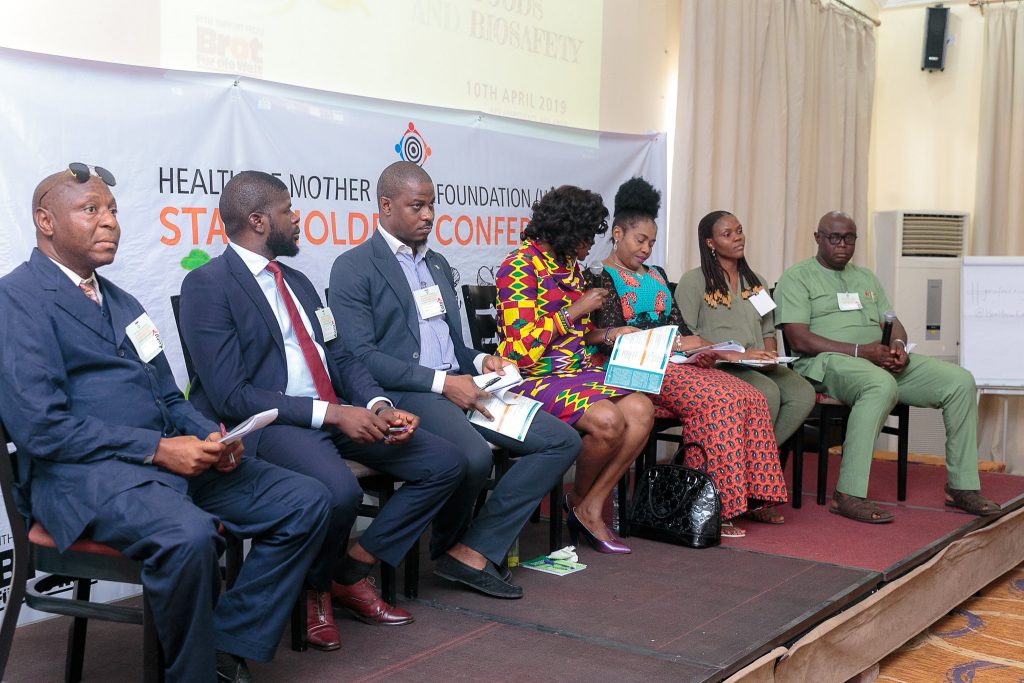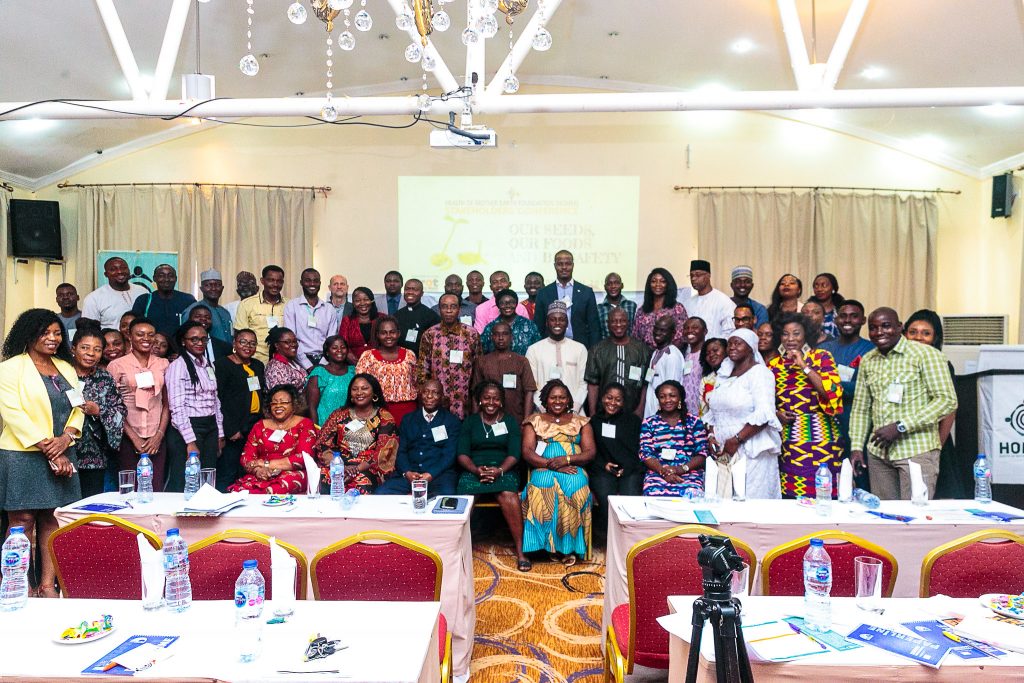Held at Apo Apartments, Apo, Abuja on 10/11 April 2019
The state of biosafety in Nigeria does require critical interrogations as concerns mount up about the implications of modern agricultural biotechnology. These concerns are further increased as Nigeria

The following are the resolutions reached by the participants at the events.
- Genetic modification of food crops is not needed in Nigeria
The challenges of food production in Nigeria lie outside the realm of supposed solutions offered by genetic engineering. What is needed is adequate support for farmers in terms of extension services, credit schemes, storage and processing facilities to reduce wastage, good roads to access markets, and increased access to agricultural land for increased productivity and food security.
2. No to colonialism, neo-colonialism through the use of modern agricultural biotechnology.
Colonialism and neocolonialism are implicated in the disruption of food systems and in the introduction of unnatural plants and animals. Agricultural biotechnology will foster corporate control of food production and disrupt local economies and thus we oppose its use in Nigeria.
3. Our current regulatory frameworks require urgent review
In order to protect Nigerians and ensure
4. The National Biosafety Management Agency (NBMA) must be held accountable to carry out their regulatory duties thoroughly.
It is the responsibility of NBMA to regulate in an unbiased manner and not to promote the use of GMOs in Nigeria or issue permits to Biotech companies indiscriminately or without due diligence including public consultations.
5. Enforce the preservation of natural and indigenous food system of Nigeria.
Our farmers’ rights to own, use and share their seeds and to be involved in charting the path for the development of our food and agricultural systems must be secured
6. The combination of GMOs and a loosely unregulated biosafety landscape will constitute great environmental harm and will intensify poverty, hunger and a devastation of consumer rights.
7. Agricultural research institutions should be well funded by the government to produce wholesome foods and to proffer sustainable, consumer friendly solutions to challenges of agricultural productivity.
8. There is need for rigorous training for small scale farmers on the implications of modern biotechnology, seed treaties and the threat to farmers’ rights. Information and terminologies on genetic engineering technology and seeds issues should be simplified to aid thorough understanding.
9. Nigeria should not sign the Union for the Protection of New Plant Varieties (UPOV 1991) but instead should design its own plant variety protection laws that are suitable to the Nigerian environment.
- There should be supervised seed extension villages where seed saving, research, seed exchange/sharing will be facilitated.
- Farmers should be carried along in the formulation of policies and legislations concerning agricultural seeds and systems.
- There should be stronger engagements among all stakeholders including the Ministry of Health, Ministry of Agriculture and the National Agricultural Council on the implications of joining UPOV.
10. The National Agricultural Seed Council Law requires amendment to ensure that:
All seed breeders, formal or informal, private small or large corporations ensure full disclosure of information relating to improved varieties.
Informal seed breeders are harmonised and empowered to sustain our indigenous varieties.
The resolutions were endorsed by individuals and representatives of the following organisations.
Health of Mother Earth Foundation (HOMEF)GMO Free Nigeria Alliance- Association for Plant Breeding for the Benefit of Society (APBREBES)
- Alliance for Food Sovereignty in Africa (AFSA)
- Bio-Integrity and Natural Food Awareness Initiative
- Heinrich Boell Foundation
- Nigerians against GMOs
- Urban-Rural Environmental Defenders
- Cassava Growers Association of Nigeria
- Women in Agriculture
- Nigerian Women Farmers Ass. (NIWAAFA)
- Association of Small Scale Agro Producers in Nigeria (
ASSAPIN ) - Small Scale Women Farmers Organization (
SWOFON ) - National Association of Non-Governmental Organisations (NANGO)
- Eco Defenders Network
- Women Environmental Programme (WEP)
- Climate Transformation and Remediation Society (CLIMATTERS)
- Civil Society Legislative Advocacy Center (CISLAC)
- Women and Children Life Advancement Initiative
- Gender and Environment Risk Reduction Initiative
- Youth Voyage of Nigeria (YVN)
- Cashew Farmers Association
- Population and Environmental Monitoring International








